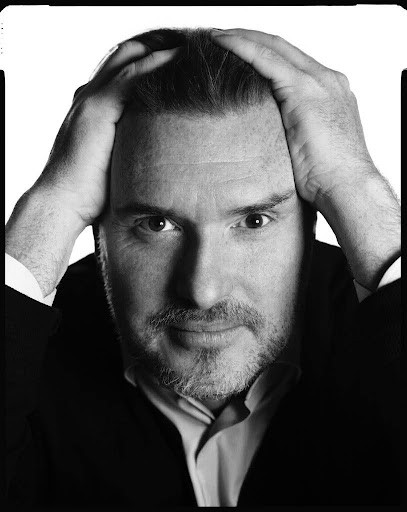
For Dickie Shearer, culture isn't a footnote in business. It is fundamental to business itself. After almost two decades of working across the Middle East, Africa and Asia, at times advising governments, ruling families and sovereign funds Shearer has come to a clear understanding: the prevailing Western frameworks of business and the financial infrastructure that supports them are not fit for purpose, meaning the Global South lags behind; not due to lack of smarts or effort, but because of a fundamental cultural cacophony.
"The world is trying to solve 2020's Global South problems with 1990s Western solutions," Shearer says. "New problems need new solutions. It's a matter of building solutions that fit the culture, economy, and values of each place and not attempting a one-size-fits-all solution."
It's a worldview that's shaped both Shearer's personal journey and his ambitious ventures. As the founder of the Tintra brand almost 20 years ago, Shearer has worked in these markets as they have evolved, most recently in exploring the potential of artificial intelligence to reshape the way that capital is utilized and risk is viewed in these markets.
But Shearer's vision goes far beyond fintech. His philanthropic work supports a broader vision that includes working with indigenous tribes to document, understand, and empower these communities and peoples.
Whilst two seemingly separate threads, these missions work in tandem with each other with one mantra: inclusion isn't just about access; it's about understanding. "There's so much more that connects us than separates us," Shearer says. "From indigenous wisdom to AI, from ancient texts to blockchain, all of these are expressions of the same human search for meaning. My work at its base is about translating between those languages: economically, culturally, philosophically."
Having spent much of his life in Asia, Shearer's background is anything but conventional. He recalls reading the Greek classics and mid-century philosophers as a teenager and seeking out spiritual experiences long before they became Western wellness trends. That introspective streak would later fuse with his work in emerging markets, shaping a thinker who views finance through a deeply human lens.
"I'm ultimately a culture guy," Shearer says. "Everything I do externally is a reflection of the way I contemplate things internally. The idea that logic and reason alone can solve human problems is, to me, a software glitch. The societal 'apps', we take for granted every day work well when they run on our Western Socratic operating system. When we try running them on Confucian, Rumi, or Ubuntu OS, we find cultural dissonance and then wonder why. What's missing to my mind is the cultural API that allows our social systems to talk to each other equally."
The idea that building systems that account for cultural differences rather than override them is what Shearer advocates for. Technologies and societies at large would benefit from understanding individual realities rather than seeing the world through a lens of preconceived bias.
Shearer advocates that many of the Global South's challenges can be met by moving away from these preconceptions into a more culturally nuanced worldview. "In Europe, a local person is assumed to be a good credit risk until they prove otherwise. The same person from an emerging economy, or a certain cultural background, is assumed to be a risk until that person jumps through unending hoops. It's in this risk perception arbitrage that the ability to change lives exists," says Shearer.
Finance and indigenous cultures seem a world apart but it is with this in mind that Shearer's interests and work converge "It is easy to forget in today's world of podcasts and never ending self help books that some of the deepest human wisdom often comes from the cultures and peoples that live the most simply." Shearer says. "They live as what I think of as pre-software humans. They haven't overlaid logic, capitalism, Socratic thinking or democracy in the way the West has and everyone I meet from these backgrounds seems content and complete in their lives. I really believe that if we want to understand ourselves, others, and the world we live in, we have to understand these peoples that have lived in harmony with - not against - the natural world for thousands of years."
This isn't just abstract philosophy; it's the blueprint for a different kind of global economy. One where risk is priced fairly, capital flows freely, and cultural differences are not flattened and homogenized but celebrated.
"Yes, technological evolution is making the world smaller," Shearer says. "But it's up to us to at the same time make it better. And that starts by recognizing that we need to move away from the prevailing paradigm of right and wrong and into one where we respect, understand and adapt to the fact that whilst we are all equal, we are not the same. And that is something that should be celebrated, not feared."
Truly, in a world chasing efficiency, Dickie Shearer is chasing understanding. And through that, he might just show how we might build a future that thinks more about those things that we all share and less about the ones that divide us.







